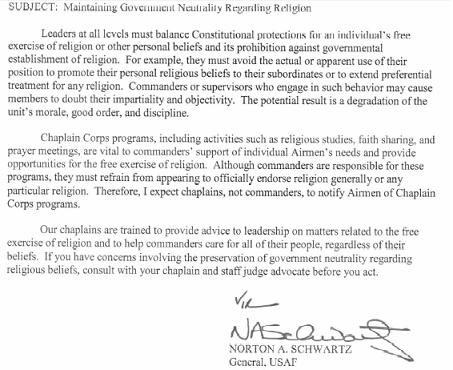Like Matt Barber before him, Christopher Doyle is misleading his evangelical peers about a New Jersey bill which would prohibit sexual orientation change efforts for minors. Here is what Doyle told Christian Post readers:
The bill is being dubbed the Jerry Sandusky Victimization Act, because when sexually abused children are denied treatment to resolve the symptoms of trauma, criminals like convicted pedophile and former Penn State University football coach Jerry Sandusky, go undiscovered, sometimes for decades.
If this legislation becomes law, monsters like Sandusky will have more protection to victimize, because children who develop SSA as a result of abuse may never tell their parents. They may never tell their parents because organizations such as Garden State Equality, the largest gay activist group in New Jersey, are indoctrinating young people to believe that homosexuality is in-born, and if a child believes they are born gay, then the possibility of resolving homosexual feelings that result from sex abuse may never enter their mind.
Either Doyle has not read Senate Bill 2278 or he is deliberately withholding information from his readers. The New Jersey bill specifically addresses the concern about abuse. The entire bill will legislative comment is below.
SENATE, No. 2278
STATE OF NEW JERSEY, 215th LEGISLATURE
INTRODUCED OCTOBER 15, 2012
Sponsored by:
Senator RAYMOND J. LESNIAK, District 20 (Union)
Senator STEPHEN M. SWEENEY, District 3 (Cumberland, Gloucester and Salem)
Senator LORETTA WEINBERG, District 37 (Bergen)
SYNOPSIS
Protects minors by prohibiting counseling attempts to change sexual orientation.
CURRENT VERSION OF TEXT
As introduced.
AN ACT concerning the protection of minors from counseling attempts to change sexual orientation and supplementing Title 45 of the Revised Statutes.
BE IT ENACTED by the Senate and General Assembly of the State of New Jersey:
1. a. A person who is licensed to provide professional counseling under Title 45 of the Revised Statutes, including, but not limited to, a psychiatrist, licensed practicing psychologist, certified social worker, licensed clinical social worker, licensed social worker, licensed marriage and family therapist, certified psychoanalyst, or a person who performs counseling as part of the person’s professional training for any of these professions, shall not engage in sexual orientation change efforts with a person under 18 years of age.
b. As used in this section, “sexual orientation change efforts” means the practice of seeking to change a person’s sexual persuasion, including, but not limited to, efforts to change behaviors or gender expressions, or to reduce or eliminate sexual or romantic attractions or feelings toward a person of the same gender; except that sexual orientation change efforts shall not include counseling that:
(1) provides acceptance, support, and understanding of a person or facilitates a person’s coping, social support, and identity exploration and development, including sexual persuasion-neutral interventions to prevent or address unlawful conduct or unsafe sexual practices; and
(2) does not seek to change sexual persuasion.
2. This act shall take effect immediately.
STATEMENT
This bill prohibits counseling to change the sexual orientation of a minor.
Under the provisions of the bill, a person who is licensed to provide professional counseling, including, but not limited to, a psychiatrist, licensed practicing psychologist, certified social worker, licensed clinical social worker, licensed social worker, licensed marriage and family therapist, certified psychoanalyst, or a person who performs counseling as part of the person’s professional training, is prohibited from engaging in sexual orientation change efforts with a person under 18 years of age.
The bill defines “sexual orientation change efforts” as the practice of seeking to change a person’s sexual persuasion,including, but not limited to, efforts to change behaviors or gender expressions, or to reduce or eliminate sexual or romantic attractions or feelings toward a person of the same gender. The term, however, does not include counseling that: provides acceptance, support, and understanding of a person or facilitates a person’s coping, social support, identity exploration and development, including sexual persuasion-neutral interventions to prevent or address unlawful conduct or unsafe sexual practices; and does not seek to change sexual persuasion.
Please note the section which addresses the issue of sexual abuse:
…except that sexual orientation change efforts shall not include counseling that:
(1) provides acceptance, support, and understanding of a person or facilitates a person’s coping, social support, and identity exploration and development, including sexual persuasion-neutral interventions to prevent or address unlawful conduct or unsafe sexual practices;
The bill correctly separates sexual abuse recovery from sexual reorientation. If a person is confused in their attractions after a trauma, then recovery from the trauma may bring some clarity to sexual attractions. This facilitation of coping and identity exploration is allowed by the law. Furthermore, the law allows therapists to discuss issues surrounding abuse (“unlawful conduct”).
In his Christian Post article, Doyle takes his opponents to task for presenting false witness. However, it seems clear that he has misrepresented the bill in his comments. Oppose the bill if you believe you should but don’t do it for false reasons.
